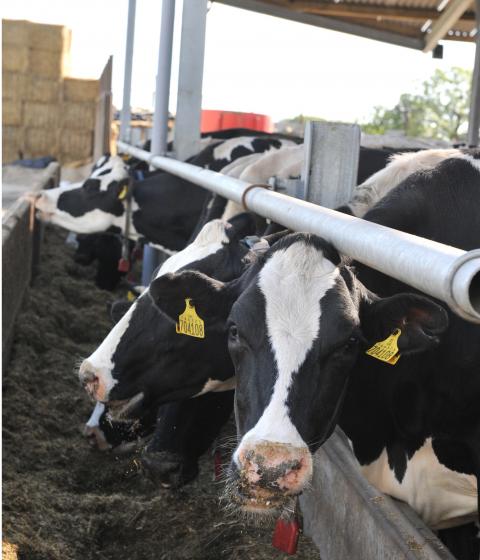18 December 2018
Welsh dairy farmers face an uncertain future if they ignore warnings of antimicrobial resistance (AMR) in their herds.
With growing consumer concern about antibiotics in agriculture and the resulting political pressure to restrict their use in food animals, milk producers are being advised to adopt protocols for appropriate use and to implement preventative strategies.
This advice was delivered during a series of Farming Connect meetings held across Wales in conjunction with local vet practices.
UK dairy farmers have been set targets to reduce their use of antibiotics by 20% by 2020. Use of critically important antibiotics (CIAs), which are also used in human medicine, must decrease by 50%.
Disease prevention and better animal management will help farmers meet those targets, according to Harry Williams, of Teilo Vets, Llandeilo.
“Good biosecurity and infection control are crucial,’’ Mr Williams told farmers attending one of the meetings at Llandeilo.
Vets can now only prescribe CIAs such as cephalosporin and fluoroquinolones following culture and sensitivity to identify the infectious organism.
Even though these are effective, there are alternatives that work and are often cheaper, said Mr Williams.
He warned that antibiotics must never be regarded as a ‘quick fix’ option as repeated and incorrect use can result in resistance developing.
Mr Williams advises weighing animals to establish the dose required, and to always complete the prescribed course.
“Farmers might think they are saving money if the animal recovers and they keep the antibiotics for future use but residual bacteria could develop a resistance to that antibiotic and it won’t work should the animal become ill again therefore in the long run it will cost them a lot more than the value of that course of antibiotics.’’
He pointed out that different antibiotics require different application methods – for instance a 70ml dose of Betamox LA for a 700kg cow should be injected in three sites while a 15ml dose of Tylan in two sites.
“If you overload in one site it interferes with absorption so you will end up under-dosing and increasing the chances of resistance.
“If you are uncertain read the data sheets or seek the advice of a vet.’’
Mr Williams said cleanliness and hygiene during administration will stop dirt being introduced on the needle, resulting in an abscess forming.
A contentious issue is the use of prophylactic antibiotics – in dairy farming this includes dry cow treatments (DCT).
This blanket treatment approach means that antibiotics are administered to many animals that have no intramammary infection.
“Each farm is different, if cell counts are high antibiotics need to be used but in herds where cell counts are low they can do more harm than good.’’
The same is true of the blanket treatment of pneumonia in calves, he added.
“We need to make sure that we are not making the same mistakes repeatedly.
“If you are routinely dosing for pneumonia, have you considered improving ventilation or vaccination?’’
Vaccines will play a key role in reducing antibiotic use but handling and storage is critical to their effectiveness – most should be stored at 2-8 degrees Centigrade.
Although the targets for reducing antibiotic use are ambitious, Mr Williams advises a step by step approach.
A handful of conditions account for the vast majority of antibiotics use on dairy farms and identifying these on a farm level is a first step to making changes.
“Focus on what the main problems are on your farm and deal with these first,’’ said Mr Williams.
Farming Connect is working with vets across Wales to provide an opportunity for farmers to carry out animal health sampling and testing with their local vet. Farm businesses registered with Farming Connect are eligible for a £150 voucher towards the cost of sampling and testing.
Sarah Hughes, Farming Connect Red Meat Technical Officer (South Wales), said antibiotics should always be a last resort, after management issues have been addressed.
“Use animal health management plans to address issues that are causing diseases and illness, it is not only sound practice from a financial point of view but demonstrates good responsible medicine use,’’ she said.
Funding for the project has been provided by the Welsh Government’s Rural Communities Rural Development Programme 2014-2020.

